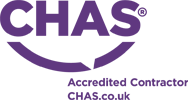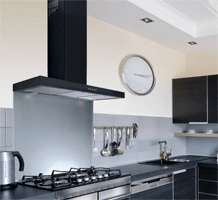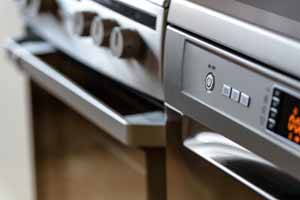Inspection and Testing of the Fixed Electrical Appliances
We are the North East’s premier PAT Testers; a leading In-Service Inspection and Testing of Electrical Equipment (ISITEE) company, with over 15 years experience.
With our office in North Shields, we work with businesses, schools and other organisations throughout Tyne and Wear, Northumberland, Co. Durham and across the UK.
As well as specialising in PAT testing, we can also help you maintain your fixed electrical installation through EICRs, Fixed Appliance Testing and Emergency Lighting Inspections.
Fixed electrical appliances cover a wide range of electrical equipment that is ‘hard wired’ into the mains. This means anything that is powered by electricity but does not have a plug.
The electrical industry has got it’s knickers in a twist over this area in the past few years, mainly over who is responsible for testing these appliances, mainly because the electricians doing the EICR weren’t checking them and they were blaming the PAT Testers, saying they should have done them. Read on to find out more about this, and how it affects you.
The Background to how we go involved with fixed appliance testing
For as long as anyone can remember the process of who tested what in electrical equipment was simple:
If it’s hard wired (directly attached to the mains) then an electrician (or other competent person who installed it) was responsible. That person would install it, maintain it, service it and check it was ok to keep using. That has happened for ever, and in most cases continues to do so. E.g. the escalator or lift gets serviced by the engineer, the Air Conditioning unit gets installed and serviced by the Air Conditioning Engineer. The toilet hand drier gets serviced and installed by the hand dryer installer, and so on, you get the point.
If it plugs in, and thus can be unplugged, it is called a portable appliance and the PAT tester checks it.
Where an issue has developed is when the appliance that is hard wired, falls into the ‘portable appliance’ bracket (old school terminology), such as a Wall mounted heater that has had the plug removed and the wires directly attached to the mains inside a ‘spur’ unit (the white box on the wall usually with a switch and or fuse). To make it even harder to argue, hotels started hard wiring hair driers into their changing rooms! They’re definately portable appliances, but now they are hard wired.
A further issue was caused by ‘appliances’ being called appliances, that were always intended to be hard wired, such as ovens – they were always intended to be hard wired, they even have their own fuse on the fuse board, but the electrician still says they are appliances that should be tested by a PAT Tester (only because they don’t want to take responsibility for themselves).
The whole argument was then made worse by this argument spilling out into the public domain, and the updated of the 4th Edition of the Code of Practice which made a big meal over the whole who tests what situation, without actually stipulating who tests what. Which led to people that don’t need to be involved in the argument, getting involved by making decisions that affect others, and expecting those others to follow suit. Such as stating in policies – the fixed appliance needs testing by the PAT tester.
Who should be testing fixed appliances
An electrician is well trained – most of them are very good at what they do (some aren’t – I have seen some awful sparkies), they’ve had a 3- year apprentice and excelled in their industry. They are trained to work with ‘live’ electrical wiring, how to isolate it (switch it off/make it safe), etc. They are trained how to wire it together and take it apart, so much until it becomes second nature. So when something has been wired into the mains system, by them, and is to be used by a person, then surely the person who did the wiring in the first place should check it is sound, a few years later.
However, that electrician who for years has slated the PAT tester, and said they shouldn’t be any where near his precious wires, is now saying the PAT Tester SHOULD be testing the fixed appliance, because it is… an Appliance.
But the PAT tester isn’t trained to do this. Get my drift? This is why there is a problem.
The electrician is trained but doesn’t do, because he says his job is to test the wiring until the socket, and the PAT Tester tests the appliance up to the socket. To me, the solution is simple and has never been an issue – the PAT tester checks the appliance, the flexible lead, the plug. The electrician tests the wiring – the fixed appliance is part of that system. Yes he may not have a PAT testing machine, but he doesn’t need one. He has a multi function tester, which is a brilliant machine. He can use that, with adaptors if necessary, or he can fall back on all that training and confirm if the appliance is safe.
People think either the fixed appliance should be tested by someone, or they don’t ever think about it – the latter is actually true most of the time. The appliance was hard wired by someone who knew what they were doing a few years ago, a safety cover was put over it and nobody has touched it since, so what’s going to go wrong? Probably nothing. But it does need to be checked someotimes, perhaps not anually like an appliance that plugs in and easily moves, but in general about once every 5 years, or whatever the term is of the EICR.
What exactly are the Fixed Appliances that need testing?
Fixed Appliances are any electrical appliances that have been hard wired. These appliances come in many forms and should be checked by someone competent to do so on a regular basis following installation. Who that is is actually up to you to decide, but here is a rough guide:
- Specialist installed equipment that comes with a service plan e.g. escalators, hand driers etc should be checked by the service plan company / installer
- Appliances that are installed by an electrician should be tested by an electrician, e.g. ovens, electric showers, extractor fans
- Appliances that started life with a plug then had the plug removed and were hard wired should be inspected by the installer or another competent person.
Number 3 is where we come in. We can’t do anything with 1 and 2; we’re not electricians. We are highly competent PAT testers, who are trained in such areas as ‘safe isolation’ so we can work on the mains if necessary, to do basic tasks such as checking an appliance that has been hard wired, but we only get involved where:
- The plug has been removed to be hard wired or
- The plug can’t be accessed such as when the appliance is integrated in a kitchen (plug behind)
If you want someone to do 1 or 2, we can’t help, you’re on the wrong site, but if it’s number 3, then get in touch, or read on for how we can help.
How can we test your fixed appliances?
Electrical appliances that you bought with a plug on, that the plug has been removed from and hard wired (such as by a kitchen fitter, or caretaker), or appliances where the plug can’t be accessed, need checking to make sure they are safe to continue using, and chances are nobody is checking them.
This is where we can help. If you have used us for a job already, then rest assured this items have been checked. If you have not used us before, read on.
When we do PAT testing, if we come across these appliances we do the best inspection we can whilst working on the ‘live’ unit. That is, we don’t isolate the mains to open the spur – you’d know if we had, because all your computers would go off!
We do a visual inspection of the appliance and the flex if accessible, and where possible we run an earth continuity test on between the ‘Spur’ and the appliance. We do this by a system called ‘Point to Point’.
A Point to Point test is carried out to test the earth continuity, but rather than plugging the appliance into the test instrument (as is normal), a specialist test lead is used to complete the circuit by connecting the tester to the earth on the supply via a suitable earth point, such as the screw on the face plate. The resistance of the protective conductor between these two points can then be measured. This is an acceptable method of inspection without the disruption of a power cut.
A further, more intrusive inspection can be carried out if preferred, but this means for the electricity to be turned off, because to do this test we need to open the spur and remove the appliance’s wires from the terminals. This takes a competent person to do it, which most PAT testers are not capable of, so if choosing another supplier be careful to check their competency, as there is a big risk of accidents occurring.
Please note, the Point to Point test is carried out a the same price as the normal PAT test, but the full inspection with isolation commands a higher fee, and is not done automatically; by appointment only.
Fixed Appliances need regular checks just like their plug counterparts, but as they are usually secured to the building there is less risk associated so usually only need an inspection every 3-5 years depending on the period of the EICR, although there are exceptions.
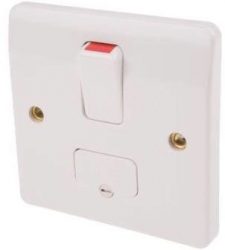
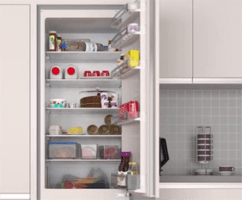
What our clients say about us…
DRA PAT Testing Ltd – A PAT Testing Company you can trust
A PAT Testing company you can trust, with fair prices and high standards, our all inclusive service is utilised by clients throughout the UK. Our clients have peace of mind from our work because they know when we say an appliance is safe, it really is.
✔ Free remedial repairs including rewires, replacement BS1363 plugs and fuses
✔ Guidance on how to improve safety through cable management and socket protection
✔ Comprehensive, compliant PAT Testing Certificate Reports including electrical readings
✔ Guidance on retest periods based on risk, compliance and insurance
We are currently one of the leading PAT testing companies in the North East with more 5-star reviews (over 500 across all platforms) than any other UK PAT Tester.
We have a team of experienced, qualified professional engineers all trained to operate to high standards, who work with assigned clients long term ensuring the best possible nurtured relationship which in turn leads to you having peace of mind that the engineer knows your business and how to maintain safety within it.
We believe in taking away your stress, by managing your electrical safety inspections for you, and reminding you when they are next due, so you can forget all about them. We can test all types of electrical equipment including industrial, 3-phase and fixed equipment as well as fixed wiring inspections.

